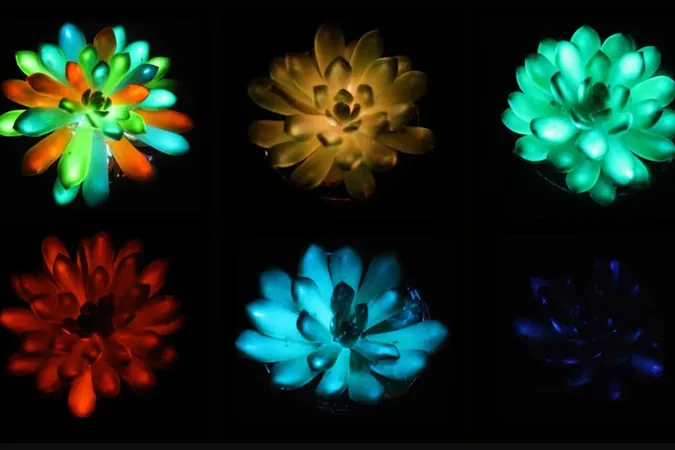
Ionic Liquids: The Surprising Key to Life Beyond Water
2025-09-03
Author: Mei
Water is often deemed the essential ingredient for life as we know it. Yet, what if it's not the only solvent that can support life? New research from MIT suggests that ionic liquids might just fill that role, especially in environments where water can't exist.
The Power of Ionic Liquids
Ionic liquids are fascinating substances that behave like salt in liquid form at room temperature, consisting of either positive or negative charged ions. Their unique polar properties allow them to dissolve other biomolecules, including crucial life components like enzymes, opening doors to alternative biochemistries.
A New Perspective on Habitability
These liquids can withstand extreme conditions, such as high temperatures that are inhospitable for liquid water, and they exhibit remarkably low vapor pressure. Thus, they wouldn’t evaporate even under slight atmospheric pressure. This revelation could redefine the habitable zones of stars, potentially welcoming planets once labeled too hot or barren.
A Scientific Breakthrough Amidst Frustration
The researchers stumbled upon this idea while grappling with an experiment intended to detect organic compounds in Venus' atmosphere, laden with sulfuric acid. Every attempt to remove the sulfuric acid left a perplexing liquid behind, which they ultimately identified as an ionic liquid formed through reactions with glycine, an organic molecule.
Natural Formation & Cosmic Potential
While ionic liquids are not commonly found on Earth—save for an unusual case involving ant venoms—they can indeed form in space when sulfuric acid interacts with organic materials. Given the abundance of organic compounds found on celestial bodies from comets to dwarf planets, the potential for life-supporting ionic liquids throughout the galaxy is tantalizing.
An Experimental Exploration
Motivated by their findings, the researchers set up experiments mimicking the conditions of potentially life-supporting exoplanets. By mixing sulfuric acid with glycine on a basalt surface, akin to planetary terrain, they successfully created stable ionic liquids under a variety of temperatures and pressures.
Facing Space's Harsh Realities
Although space conditions pose further challenges—like excess sulfuric acid and high radiation—the researchers believe these ionic solutions could be sheltered by receiving rock formations or protective magnetic fields. A space brimming with resilient organic compounds hints at diverse life possibilities elaborating the current understanding of extraterrestrial habitats.
Inspiring Future Astrobiology
This research is a significant leap toward unraveling the mysteries of potential life forms elsewhere in the universe. While it doesn't provide definitive proof of life outside Earth, it offers a thrilling perspective for future astrobiologists on where—and how—they should search. The future of life's origins could very well extend far beyond water.




 Brasil (PT)
Brasil (PT)
 Canada (EN)
Canada (EN)
 Chile (ES)
Chile (ES)
 Česko (CS)
Česko (CS)
 대한민국 (KO)
대한민국 (KO)
 España (ES)
España (ES)
 France (FR)
France (FR)
 Hong Kong (EN)
Hong Kong (EN)
 Italia (IT)
Italia (IT)
 日本 (JA)
日本 (JA)
 Magyarország (HU)
Magyarország (HU)
 Norge (NO)
Norge (NO)
 Polska (PL)
Polska (PL)
 Schweiz (DE)
Schweiz (DE)
 Singapore (EN)
Singapore (EN)
 Sverige (SV)
Sverige (SV)
 Suomi (FI)
Suomi (FI)
 Türkiye (TR)
Türkiye (TR)
 الإمارات العربية المتحدة (AR)
الإمارات العربية المتحدة (AR)